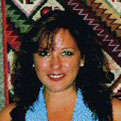
Sunil Agnani has a joint appointment with the Department of History and the Department of English. He teaches courses on the European Enlightenment, eighteenth-century British and French thought, and on the literature of empire and decolonization. He is currently completing a book manuscript, “European Anticolonialism at its Limit: Denis Diderot and Edmund Burke, 1770-1800,” which reads the literature of the Enlightenment in relation to debates in postcolonial thought. Recent publications include an essay on Denis Diderot entitled "Doux commerce, douce colonisation" in The Anthropology of the Enlightenment (Stanford UP, 2007) and an article examining Edmund Burke's writings on France in relation to his involvement in Indian affairs, "Jacobinism in India, Indianism in English Parliament" (Cultural Critique, Winter 2008). His research aims to unite a training in literary fields and methodologies with an interdisciplinary approach that draws on cultural theory and the history of political thought to engage critically with European literature and thought of the eighteenth century. On this topic, he recently participated in a roundtable with literary critics, historians and anthropologists on "The end of postcolonial theory?" (Publications of the Modern Language Association / PMLA 122, 2007).

Christopher Hodson specializes in colonial and Atlantic history, with an emphasis on the eighteenth-century French empire, comparative imperialism, and early modern diasporas. After earning his PhD. from Northwestern University in 2004, Chris spent two years as an Andrew Mellon Fellow at the McNeil Center for Early American Studies, University of Pennsylvania. In 2007, he came to BYU, where he teaches both upper- and lower-division courses in the Department of History. He is currently completing his book manuscript, Refugees: The Worlds of the Acadian Diaspora, which will be published by Oxford University Press. His next project, to be co-authored with Brett Rushforth of the College of William and Mary, is entitled Discovering Empire: France and the Atlantic World from the Age of Columbus to the Rise of Napoleon. It will be published by Basic Books. Chris’s articles have appeared in several journals, including Early American Studies, Eighteenth-Century Studies, French Historical Studies, Outre-mers: révue d’histoire, and the William and Mary Quarterly. He is co-director (with Eric Hinderaker of the University of Utah) of the Rocky Mountain Seminar in Early American History (http://history.byu.edu/rmseah). He lives in Springville, Utah, with his wife, Sarah, and their three children.

William Nelson specializes in European history from the eighteenth century to the present day, with a special focus on the intellectual history of France in the eighteenth century. He is also interested in the relationship between France and its colonies, particularly those in the Atlantic world. Before coming to the University of Miami, Professor Nelson was a Mellon Postdoctoral Research Fellow and Associate Director of Studies at the Centre for History and Economics, King’s College, The University of Cambridge (UK). He is currently working on revising and expanding his doctoral dissertation into a book manuscript entitled “The Weapon of Time: Constructing the Future in France, 1750 to Year One.” While working on his dissertation he was the recipient of several awards including the Marjorie M. Farrar Memorial Award from the Society for French Historical Studies for an outstanding dissertation in progress, a Chancellor's Dissertation Year Fellowship from the University of California, Los Angeles, and a Mellon Foundation Dissertation Research Fellowship. Currently, he is also working on a research project that explores the development of ideas on race in the eighteenth and nineteenth centuries.
 Frank Palmeri is Professor of English and Director of Graduate Studies at the University of Miami. He has written Satire in Narrative (1990) and Satire, History, Novel: Narrative Forms 1665-1815 (2003), and edited Humans and Other Animals in Eighteenth-Century British Culture (2006). He has also published articles on Thomas Pynchon and American culture in Postmodern Culture, ELH, and other venues.
Frank Palmeri is Professor of English and Director of Graduate Studies at the University of Miami. He has written Satire in Narrative (1990) and Satire, History, Novel: Narrative Forms 1665-1815 (2003), and edited Humans and Other Animals in Eighteenth-Century British Culture (2006). He has also published articles on Thomas Pynchon and American culture in Postmodern Culture, ELH, and other venues.













